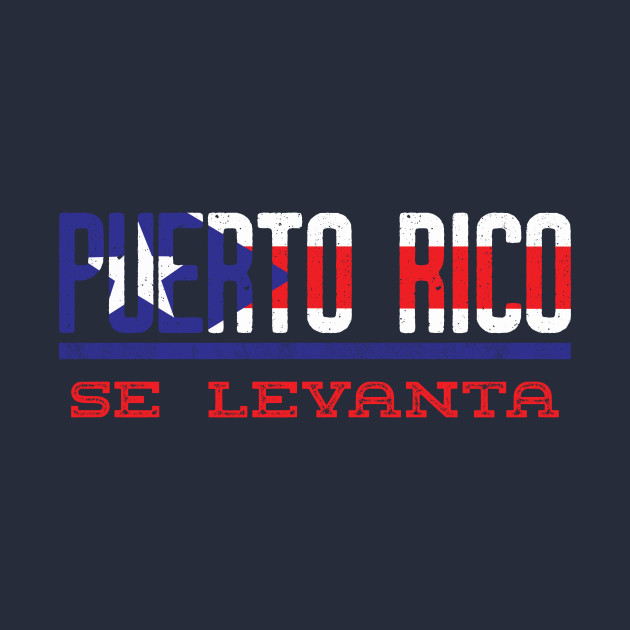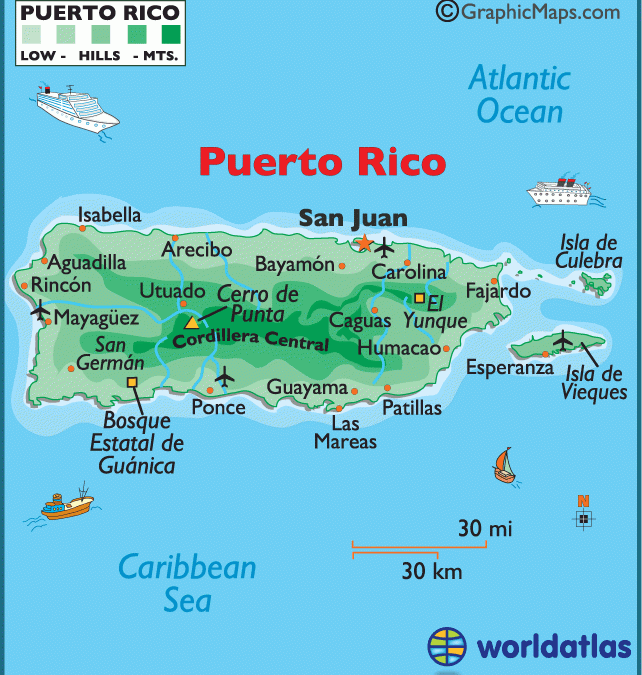- Puerto Rico is a self-governing commonwealth in association with the United States. It is not a state of the union, but it has been under the control of the United States since it was annexed in 1898, at the end of the Spanish-American War. The chief of state is the US President and the head of government is an elected Governor.
- Before it was colonized by Spain in 1508, Puerto Rico was called Boriken or Borinquen, which means: “the great land of the valiant and noble Lord” or “land of the great lords,” by its native inhabitants, the Taínos. The word Boricua refers to a person of Puerto Rican origin.
- It’s an archipelago, or a group of islands, consisting of one larger island and two inhabited islets in the Caribbean Sea, southeast of Florida and east of Cuba and Hispaniola (Haiti/Dominican Republic.)
- The population in Puerto Rico is approx. 3.4 million.
- Ethnic composition: white (mostly Spanish origin) 80.5%, black (East and West African) 8%, Amerindian 0.4%, Asian 0.2%, mixed and other 10.9%.
- Religion: The major religions are: Catholic (85%), Protestant (8%), non-religious (2.3%), and others (3%).
- In 2007, it was estimated that there we over 5,000 Muslims in PR, representing about .10% of the population. There are 9 mosques in Puerto Rico in the following locations: Montehiedra, Rio Piedras, Fajardo, Aguadilla, Arecibo, Hatillo, Ponce, Vega Alta, and San Juan

- Current Issues:
– Financial crisis- Puerto Rico has been experiencing an economic depression for 11 consecutive years. The government owes more than $70 billion USD in outstanding debt
– Waves of Puerto Ricans are leaving the island and migrating to the US because of its current social climate. (Population is declining at 1% per year)
– Puerto Rico struggles with an unemployment rate surpassing 14% in recent years (nearly 17% in 2010) and a per capita income about half the level of the poorest U.S. state, Mississippi.
– Sales tax jumped from 7 to 11.5 percent in July 2015. The cost of living is about 13 percent higher than the U.S. average (Puerto Rico has a higher measure of income inequality than any U.S. state)
– Puerto Rico’s median household annual income is $19,000, about a third of the U.S. median.
– Drugs are behind most local violent crime (PR’s location and association with the US make it a popular drug smuggling port)
– Puerto Ricans are considered US citizens, but are not allowed to vote (unless they live on the mainland US)
SIGN UP TO BE VOLUNTEER
Volunteers are truly the heart of 3IMAMS and keep us moving efficiently and effectively
FOLLOW US


